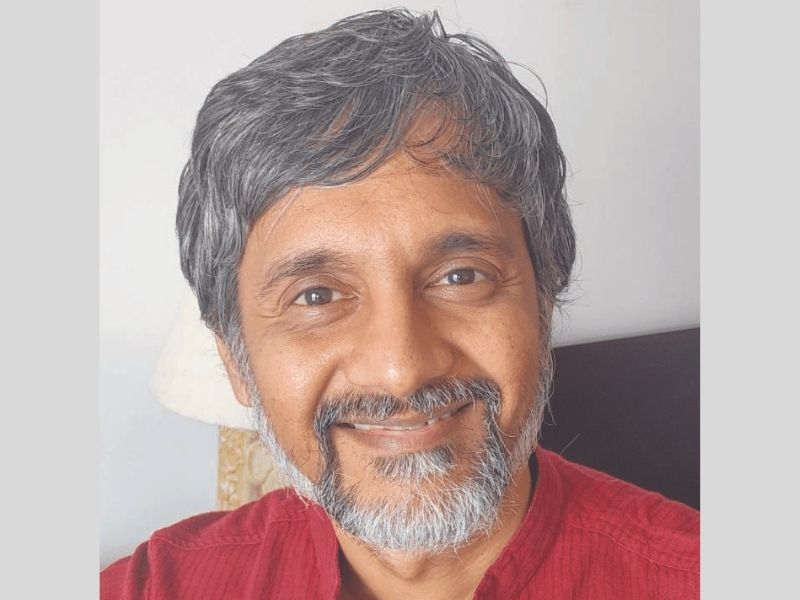On September 6, government and private schools in Karnataka (pop. 68.4 million) reopened for on-campus, in-person teaching-learning for classes VI-VIII children after 18 months of Covid disruption. Two weeks earlier, schools had reopened for classes IX-XII students on August 23. Therefore, all middle-secondary students statewide are back in class and learning normatively, subject to prescribed Covid-19 protocols. However, the BJP-led state government is still dithering on the issue of getting pre-primary and primary children back into classrooms. World over — especially in developed OECD countries — schools have reopened in reverse order because youngest children are least vulnerable to Covid-19 infection.
Be that as it may, the reopening of in-person classes hasn’t come a day too soon because on that very day, the globally-respected Pratham Education Foundation (estb.1994), which has been publishing its authoritative Annual Status of Education Report (ASER) based on field tests to measure learning outcomes of primary school children in India since 2005, released the ASER 2020 Karnataka Rural report. The report confirms that children in the 6-14 age group have suffered huge loss of learning during the 60-week lockdown of schools for fear of the pandemic.
ASER 2020 Karnataka Rural reports that 56.8 percent of class I students surveyed could not recognise/read Kannada language alphabets (cf. 40 percent in 2018); only 34 percent of class V students could read a class II text (cf. 46 percent) and a mere 56.5 percent of class VII students could read a class II textbook paragraph with fluency and comprehension. Bad as that is, the decline in arithmetic learning levels is worse. An estimated 42 percent of class I students could not recognise numbers from one to nine (cf. 30 percent in 2018). Only 17.3 percent of class III students were able to do subtraction sums (cf. 26.3 percent) and only 38.9 percent of class VIII students can do simple division sums.
For the survey, ASER volunteers visited 13,365 households covering 670 villages in 24 rural districts of Karnataka and tested the learning outcomes of children aged between 3-14 years.
Governments around the world have accorded high priority to restarting on-campus, in-person classes for youngest children who are most in danger of forgetting what they may have learned in previous years. Sweden didn’t lockdown schools at all and France and Tanzania shut down primaries for a mere 15 weeks to prevent children’s learning loss.
In sharp contrast, the Karnataka government has exhibited no urgency to restart normative schooling despite being fully aware that online learning is a mirage for most children in the state. According to the Internet & Mobile Association of India, Internet penetration in Karnataka — India’s Silicon Valley — is a mere 42 percent.
Rishikesh B.S.
Comments Rishikesh B.S., associate professor at the School of Education, Azim Premji University, Bengaluru: “The ASER 2020 Karnataka Rural report reflects the reality of school education in the state. Learning levels of the majority of children are at least three grades below their class level. The pandemic-prompted schools lockdown has worsened learning outcomes with children forgetting what they learnt in the earlier year. The government needs to immediately reopen all schools including primaries with adequate safeguards and start intensive remedial education to address the learning loss. Children have now been out of school for 18 months, so even a three-month bridge course won’t help. The government needs to specially train teachers to deliver bridge and remedial courses and bring children up to speed. We will need to give our teachers 500 days — until the end of the academic year 2022-23 — to bring children to their age-appropriate learning level.”
Curiously while academics and teachers statewide are pushing the panic button, the state government seems totally nonchalant and politicians are busy devising strategies for the next legislative assembly election scheduled for early 2023. Meanwhile, with their own progeny learning from fully wired homes connected with the city’s top-ranked schools, industry leaders in Bengaluru — India’s IT capita — are also indifferent to the massive learning loss of the majority of Karnataka’s 22 million child and youth population. With the growth momentum of Karnataka’s IT and affiliated industries expected to rise sharply in the post-pandemic era, the state is very likely to experience an acute shortage of well-educated and skilled personnel in the years ahead.
Reshma Ravishanker (Bengaluru)
Also read: Karnataka: Schools to reopen for classes 6-8 on September 6
